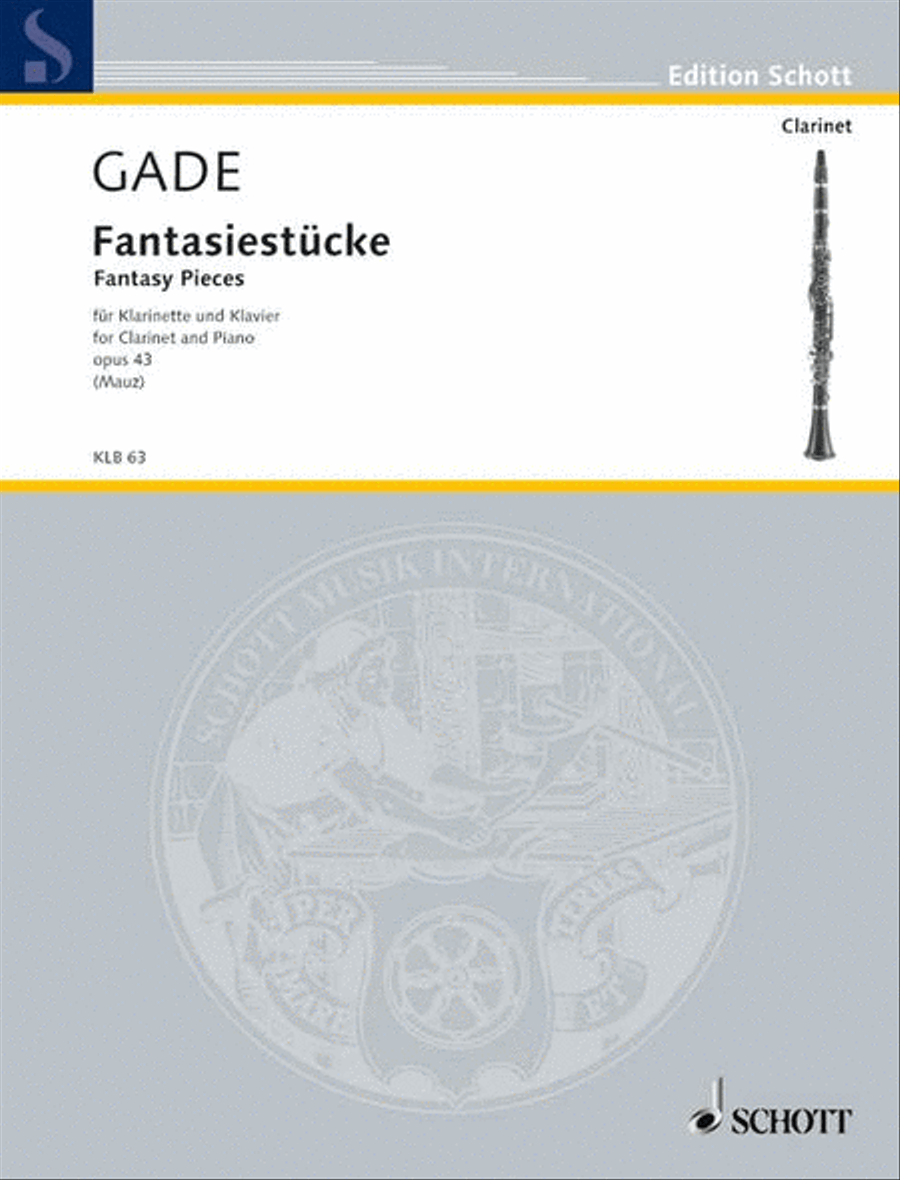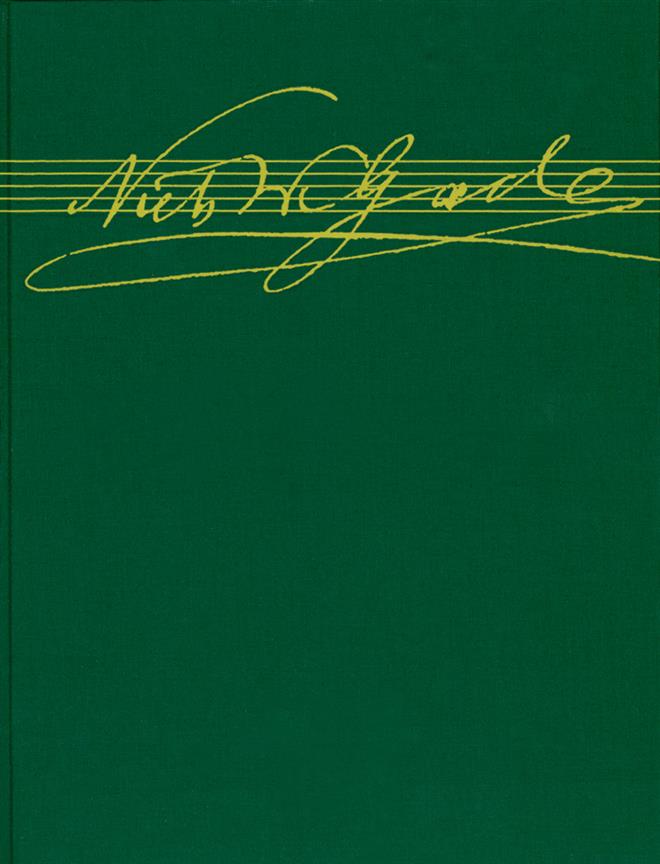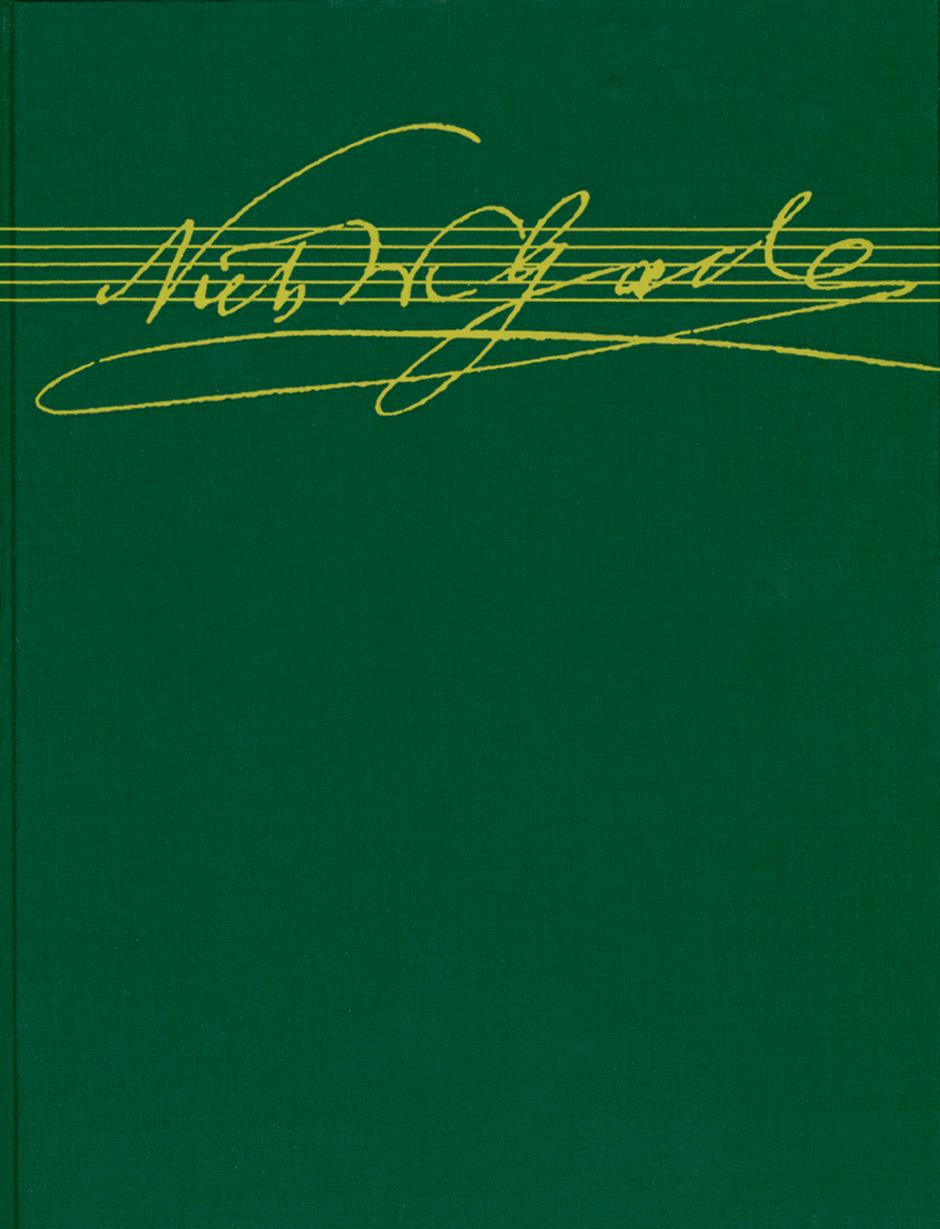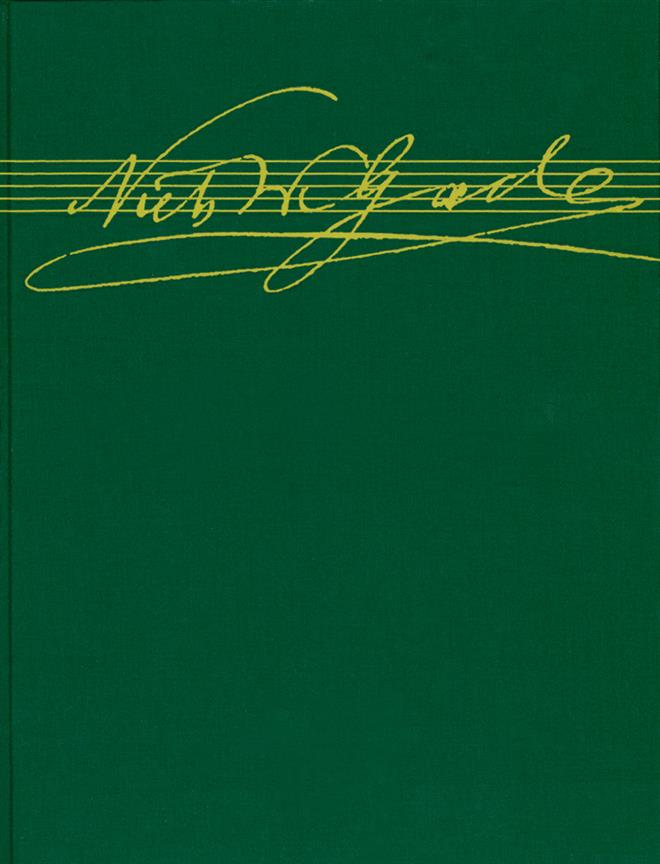Niels Wilhelm Gade (1817 - 1890)
 Danemark
Danemark
 Danemark
DanemarkNiels Wilhelm Gade (February 22, 1817 ? December 21, 1890) was a Danish composer, conductor, violinist, organist and teacher. He is considered the most important Danish musician of his day.
Gade was born in Copenhagen, the son of a joiner and instrument maker. He began his career as a violinist with the Royal Danish Orchestra, and saw his concert overture Efterklange af Ossian ("Memories of Ossian") premiered with them in 1840. When his first symphony was turned down for performance in Copenh ... (Read all)
Source : Wikipedia
Gade was born in Copenhagen, the son of a joiner and instrument maker. He began his career as a violinist with the Royal Danish Orchestra, and saw his concert overture Efterklange af Ossian ("Memories of Ossian") premiered with them in 1840. When his first symphony was turned down for performance in Copenh ... (Read all)
Source : Wikipedia
FREE SHEET MUSIC
4 Fantasiestücke for Clarinet (Violin) and Piano, Op.43 ( Op.43)
Gade, Niels Wilhelm
Clarinet (or Violin) and Piano / 1 PDF
Novelletten for Piano Trio (Op.29)
Niels Wilhelm Gade
Piano, Violin and Cello (original instrumentation) / 1 PDF
Indgangs-Marsch, Entry March (Juletraeet, Christmas Tree op. 36, no. 3)
Niels Wilhelm Gade
Piano solo / 1 PDF / 1 MP3 / MIDI
Search
1 9


 NIELS GADE Bridal Waltz for string quartet
NIELS GADE Bridal Waltz for string quartet
$7.99 #String Quartet: 2 violins, viola, cello #Niels Wilhelm Gade #Paul Cowell #Paul Cowell


 Gade - Barcarole No. 5 in F Major - Advanced
Gade - Barcarole No. 5 in F Major - Advanced
$5.95 #Piano solo #Niels Wilhelm Gade #Piacere Music Sheets #Piacere Music Sheets
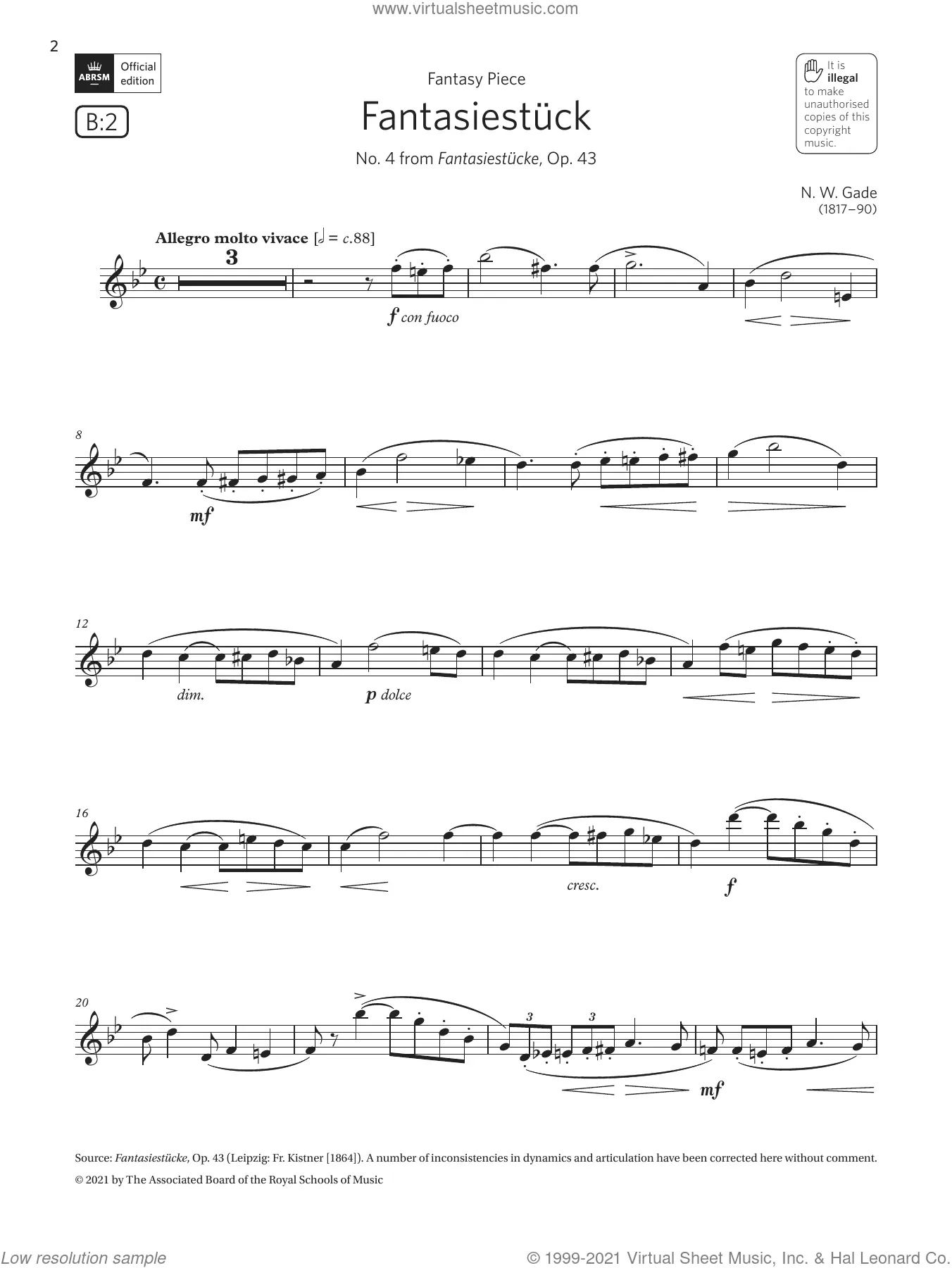
 Niels Wilhelm Gade: Fantasiestuck (No. 4 from Fantasiestucke) (Grade 6 List B2 ABRSM Clarinet syllabus from 2022) - clarinet solo
Niels Wilhelm Gade: Fantasiestuck (No. 4 from Fantasiestucke) (Grade 6 List B2 ABRSM Clarinet syllabus from 2022) - clarinet solo
$8.97 #Clarinet #Niels Wilhelm Gade


 Children's Christmas Eve
Children's Christmas Eve
$11.99 #Piano solo #Niels Wilhelm Gade #Schott Music - Digital
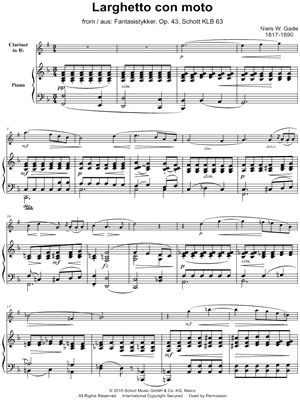
 4 Fantasiest?cke, Op. 43: I. Larghetto con moto - Clarinet & Piano by Niels Wilhelm Gade - Solo & Accompaniment
4 Fantasiest?cke, Op. 43: I. Larghetto con moto - Clarinet & Piano by Niels Wilhelm Gade - Solo & Accompaniment
$5.25 #Clarinet and Piano #4 Fantasiest?cke, Op. 43: I. Larghetto con moto - Clarinet & Piano
More digital shop results ⇒
NIELS GADE Bridal Waltz for string quartet



$7.99 #String Quartet: 2 violins, viola, cello #Niels Wilhelm Gade #Paul Cowell #Paul Cowell
Gade - Barcarole No. 5 in F Major - Advanced



$5.95 #Piano solo #Niels Wilhelm Gade #Piacere Music Sheets #Piacere Music Sheets


$8.97 #Clarinet #Niels Wilhelm Gade
Children's Christmas Eve



$11.99 #Piano solo #Niels Wilhelm Gade #Schott Music - Digital


$5.25 #Clarinet and Piano #4 Fantasiest?cke, Op. 43: I. Larghetto con moto - Clarinet & Piano
More digital shop results ⇒
| ||||||||||||||||||||||||||||||||||||||||





































